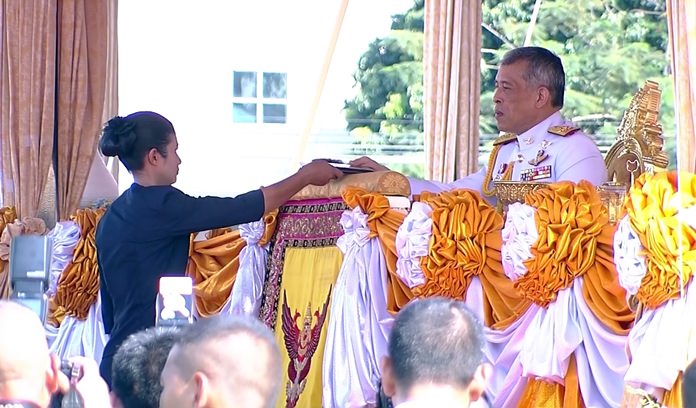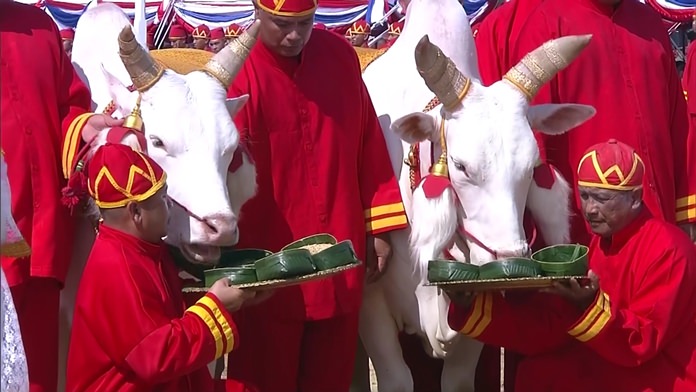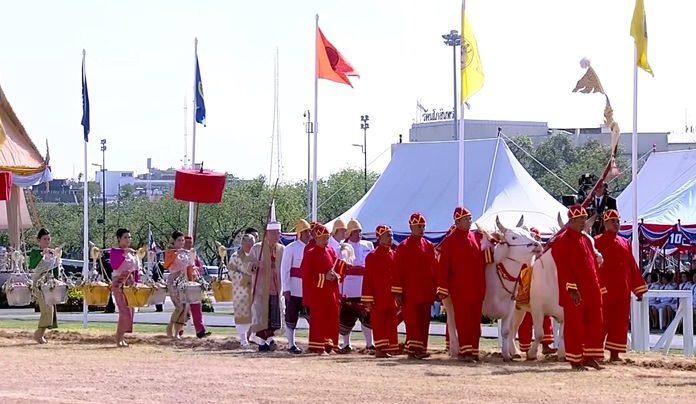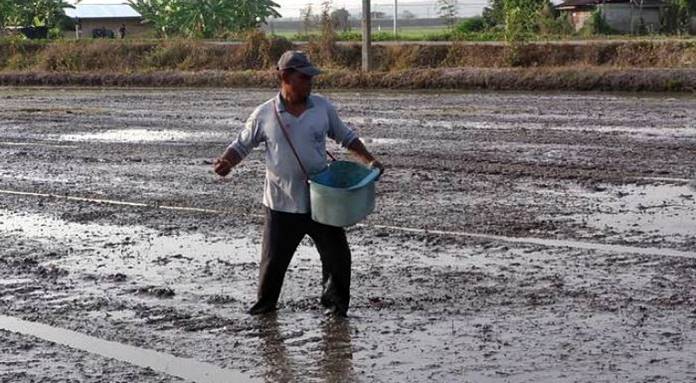
Farmers begin sowing rice seeds on the auspicious day
This year’s Royal Ploughing Ceremony has predicted good yields for lowland farms, but less than abundant yields in the highlands.
His Majesty the King of Thailand graciously appointed Permanent Secretary of the Ministry of Agriculture and Cooperatives, Lertviroj Kowattana to serve as Lord of the Ploughing Ceremony. He departed from in front of Wat Phra Sri Rattana Sasadaram at 7:19 a.m. for Sanam Luang with the year’s ceremony officially beginning at the auspicious time of 8:29a.m. upon the arrival of His Majesty the King.

The sacred oxen chose a piece of cloth measuring six palms, predicting low water, strong yields in lowland areas and low yields with some damage to crops in highland areas.
Upon being offered seven types of food, the sacred oxen chose water and grass, forecasting adequate water as well as food and vegetation, and liquor, predicting improved transportation, foreign trade and a prosperous economy.
Farmers across the country are sowing their first seeds of the season on the same day as this year’s Royal Ploughing Ceremony for good fortune, and have urged the government to help support the price of crops.
In Bueng Kan, the family of Mr Chaliw Chanabun in Non Sombun Subdistrict began sowing “Gor Kor 15” rice as they believe sowing the seeds on the same day as the Royal Ploughing Ceremony will bring them good fortune and a bountiful harvest. They also urged the government to implement policies that secure the price of rice.
The family of Mr Kampin Pongpan in Bua Thong Subdistrict in Buriram have also begun ploughing their fields in the belief that the Royal Ploughing Ceremony will bring about seasonal rain. They also hope that the government won’t let the price of rice drop as happened in previous years. If possible, prices should be maintained above 16,000 baht per ton to break even, they say.
In Nong Khai, many farmers had already begun planting due to recent rainfall but have also reserved parts of their farms for the auspicious day. Meanwhile, the sufficiency economy learning center in Si Kai Subdistrict has also invited members to begin planting fruit trees and vegetables within the center.
In Uthai Thani, farmers have sown their new seed on the auspicious day and intend to implement agricultural practices according to the theories of His Majesty King Rama 9.
In Ayutthaya, the Ban Tepo Learning Center in Sam Ruean Subdistrict has held a merit making ceremony to bless the rice seeds. Governor Sujin Chaichumsuk led the attendants in giving alms to monks and inaugurated the province’s planting season by sowing seeds and setting up scarecrows.


 |
 |





